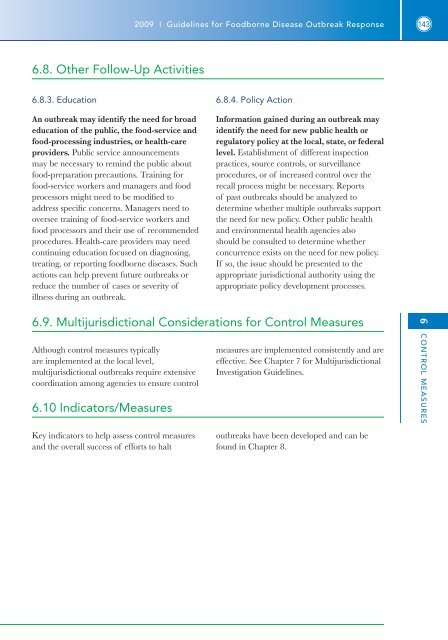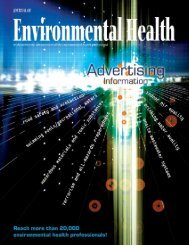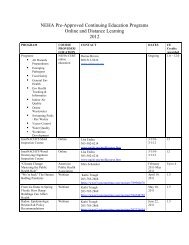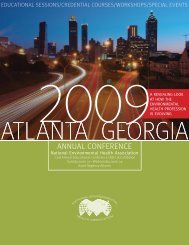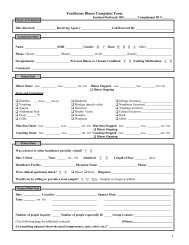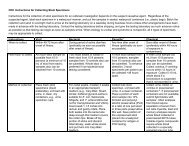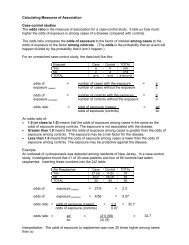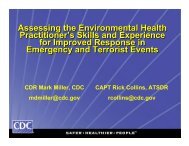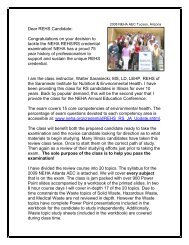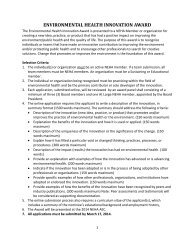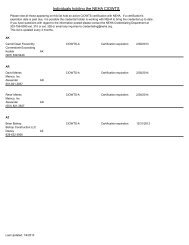Guidelines For Foodborne Disease outbreak Response.pdf - CIFOR
Guidelines For Foodborne Disease outbreak Response.pdf - CIFOR
Guidelines For Foodborne Disease outbreak Response.pdf - CIFOR
You also want an ePaper? Increase the reach of your titles
YUMPU automatically turns print PDFs into web optimized ePapers that Google loves.
2009 | <strong>Guidelines</strong> for <strong>Foodborne</strong> <strong>Disease</strong> Outbreak <strong>Response</strong> 143<br />
6.8. Other Follow-Up Activities<br />
6.8.3. Education<br />
An <strong>outbreak</strong> may identify the need for broad<br />
education of the public, the food-service and<br />
food-processing industries, or health-care<br />
providers. Public service announcements<br />
may be necessary to remind the public about<br />
food-preparation precautions. Training for<br />
food-service workers and managers and food<br />
processors might need to be modified to<br />
address specific concerns. Managers need to<br />
oversee training of food-service workers and<br />
food processors and their use of recommended<br />
procedures. Health-care providers may need<br />
continuing education focused on diagnosing,<br />
treating, or reporting foodborne diseases. Such<br />
actions can help prevent future <strong>outbreak</strong>s or<br />
reduce the number of cases or severity of<br />
illness during an <strong>outbreak</strong>.<br />
6.8.4. Policy Action<br />
Information gained during an <strong>outbreak</strong> may<br />
identify the need for new public health or<br />
regulatory policy at the local, state, or federal<br />
level. Establishment of different inspection<br />
practices, source controls, or surveillance<br />
procedures, or of increased control over the<br />
recall process might be necessary. Reports<br />
of past <strong>outbreak</strong>s should be analyzed to<br />
determine whether multiple <strong>outbreak</strong>s support<br />
the need for new policy. Other public health<br />
and environmental health agencies also<br />
should be consulted to determine whether<br />
concurrence exists on the need for new policy.<br />
If so, the issue should be presented to the<br />
appropriate jurisdictional authority using the<br />
appropriate policy development processes.<br />
6.9. Multijurisdictional Considerations for Control Measures<br />
6<br />
Although control measures typically<br />
are implemented at the local level,<br />
multijurisdictional <strong>outbreak</strong>s require extensive<br />
coordination among agencies to ensure control<br />
6.10 Indicators/Measures<br />
measures are implemented consistently and are<br />
effective. See Chapter 7 for Multijurisdictional<br />
Investigation <strong>Guidelines</strong>.<br />
Control Measures<br />
Key indicators to help assess control measures<br />
and the overall success of efforts to halt<br />
<strong>outbreak</strong>s have been developed and can be<br />
found in Chapter 8.


